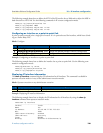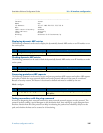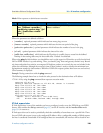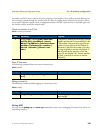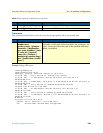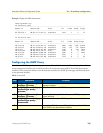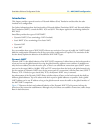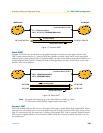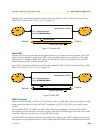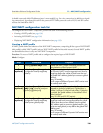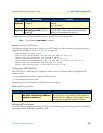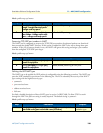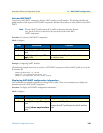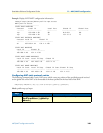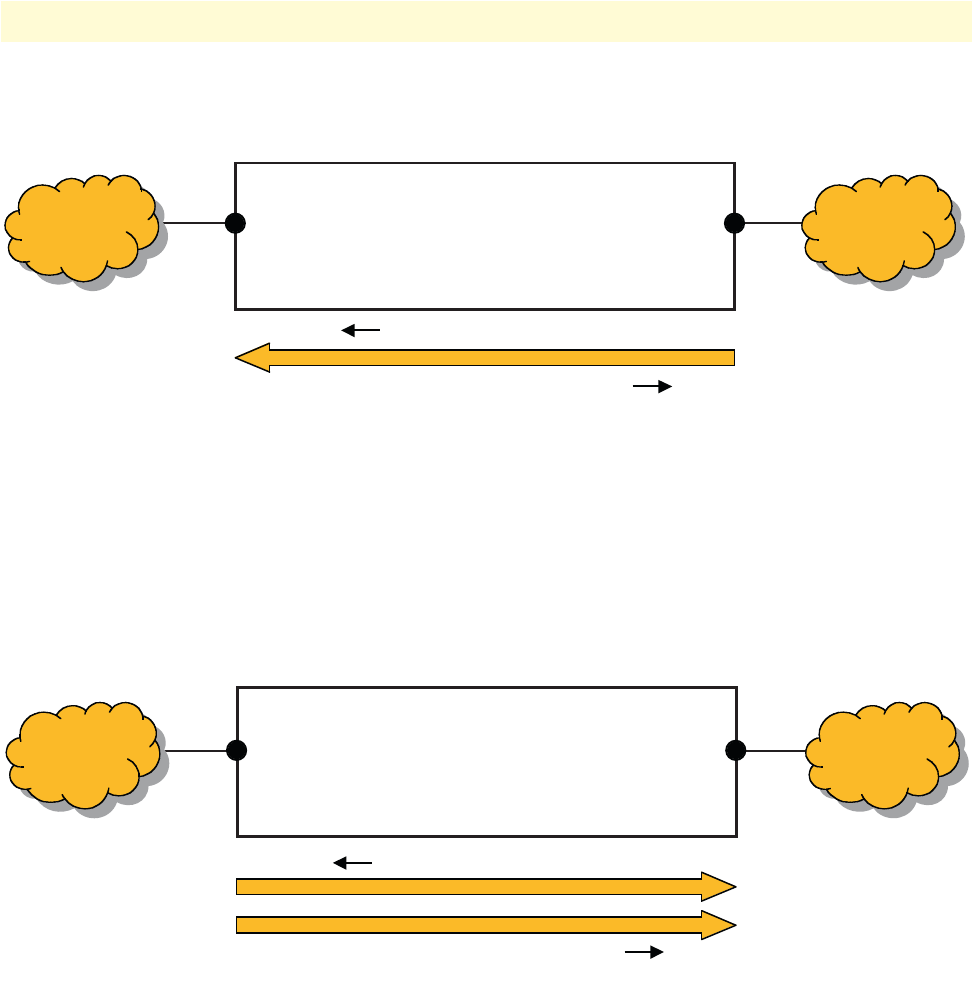
Introduction 134
SmartWare Software Configuration Guide 11 • NAT/NAPT configuration
Figure 17. Dynamic NAPT
Static NAPT
Dynamic NAPT does not permit hosts on the global network to access hosts on the local network. Static
NAPT makes selected services (i.e. ports) of local hosts globally accessible. Static NAPT entries map global
addresses/ports to local addresses/ports. The global address can either be the address of the global interface or a
configured global NAPT address. Usually, the local and the global port of a static NAPT entry are the same;
however, they may be different.
Figure 18. Static NAPT
Note Be careful when mapping ports the SmartNode uses itself (e.g. Telnet,
TFTP) because the SmartNode might become inaccessible.
Dynamic NAT
NAT only modifies addresses but not ports. Dynamic NAT assigns a global address from a global NAT address
pool each time a local host wants to access the global network. It creates a dynamic NAT entry for the reverse
path. If a connection is idle for some time (2 minutes), the dynamic NAT entry is removed. Should Dynamic
NAT run out of global addresses, it lets Dynamic NAPT handle the connection (which may lead to an unex-
pected behavior).
Global Network
131.1.1.1 (Global Interface Address)
131.1.1.10 - 131.1.1.15 (Global NAT Address Pool)
192.168.1.30 - 192.168.1.39131.1.1.10 - 131.1.1.15
WAN
Source Address modified
Destination Address modified
Local Network
LAN
(Local Interface Address) 192.168.1.1
131.1.1.1 (Global Interface Address)
131.1.1.3 (Global NAPT Address)
192.168.1.20:80
131.1.1.1:80
131.1.1.3:23
WAN
192.168.1.20:23
Source Address modified
Destination Address modified
LAN
(Local Interface Address) 192.168.1.1



